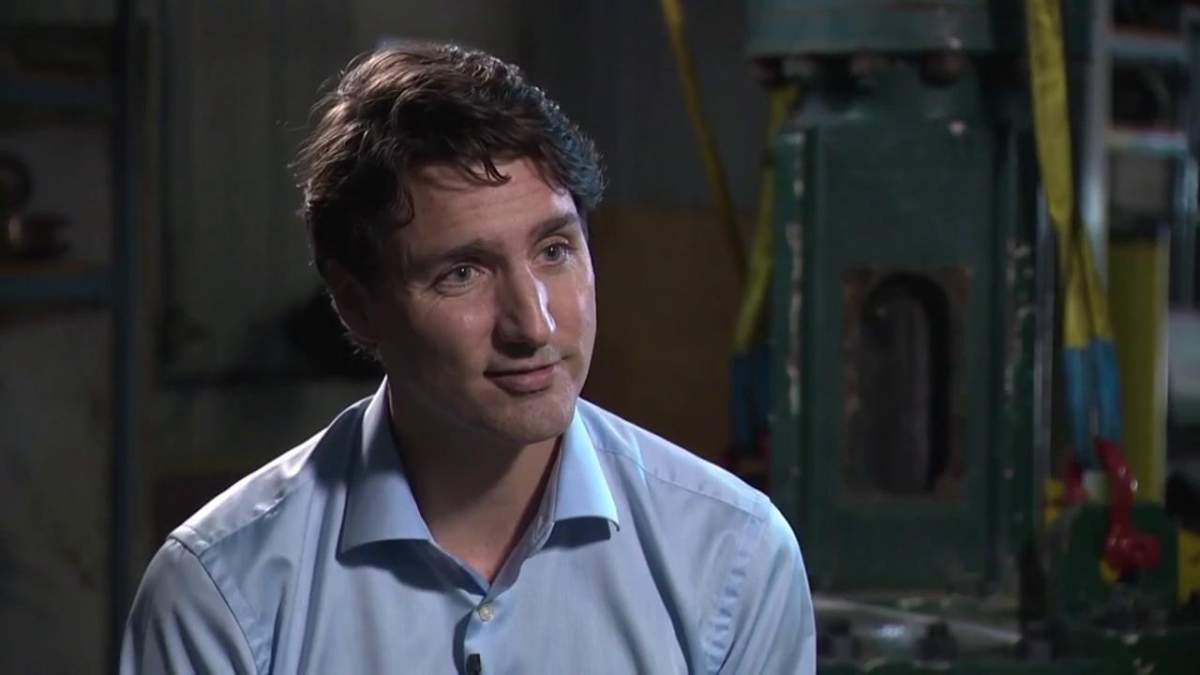In the space of one week, Prime Minister Justin Trudeau did two things that may transform his image from that of a soft vacillator to that of a tough politico who is prepared to make the bold calls.

Whether this works for him will not be known until he tests the electorate next year, but anytime a political leader seems tougher, things tend to work out for the better more often than not.
First, Trudeau bought a controversial pipeline, knowing full well the heated reaction that would get.
Second, he stood up to a bullying U.S. President Donald Trump over proposed tariffs on Canadian steel and aluminum.
Let’s deal with the pipeline first.
In proposing to take the pipeline off Kinder Morgan’s hands and to have the federal government – potentially, if no private investor(s) can be found – construct the second line, Trudeau followed through on his vow that “this pipeline will be built.”
That he had no real option but to go into the pipeline business is one thing (he essentially trapped himself into this course of action because he sat on his hands too long as Kinder Morgan was relentlessly pummeled for years by other governments and protestors).
But to actually do it, knowing the gasps such action would induce in various quarters (including a good chunk of his supporters) still took a measure of political steeliness.
Trudeau, at the end of the day, has chosen to cast his lot with business and industry and the economy instead of with environmental activists.

Get daily National news
This break had to occur at some point, over some issue. A government cannot govern effectively by shutting down a big part of the Canadian resource sector, a move that could lead to an economic downturn (if not an outright economic disaster).
He has made it clear that people like David Suzuki and Stewart Phillip are not driving his government’s bus. The pipeline decision further cuts ties with the protest crowd.
Politically, the Conservatives cannot effectively attack Trudeau over his pipeline move because they, too, support the project. Federally, the political party most opposed to the pipeline is the NDP, but it is going nowhere fast, with a leader who has not come close to resonating with voters.
Trudeau can afford to lose a chunk of his environmental wing since it really has nowhere else to go. The federal Green Party remains a tiny fringe element on the political scene.
To be sure, there will also be many who do not like spending tax dollars on pipelines, but Trudeau is clearly gambling that will not be a vote-changer for many.
So while the pipeline decision may cost him a few seats, it’s unlikely to send him packing from the PMO, given his rather weak political opponents.
As for Trump, the prime minister – who has had a good enough relationship with the president in the past to be called by some as the “Trump whisperer” – used unusually strong language in condemning the tariffs and then had his government launch its own set of counter-tariffs to the tune of more than $16 billion.
Trump’s tariffs are “insulting and unacceptable,” according to the prime minister, who pointed our two countries fought in wars together.
WATCH: Prime Minister Justin Trudeau says he isn’t paying much attention to a “quip” made by President Donald Trump during a recent phone call, in which Trump justified labeling Canada a national security threat based on British North America’s role in the burning of the White House during the War of 1812.

The massive counter-tariffs are the biggest trade action by a Canadian government since WWII, and the move is not without risks. Given Trump’s volatility and complete lack of predictability, Trudeau’s tough talk and tough action may harden Trump’s position and lead to a drawn-out trade war that hurts both sides.
Then again, he may be able to move Trump off his strategy (if there is indeed an actual strategy in play) as the mid-term U.S. elections approach. Indeed, already the language coming from Trump officials seems to be softening (the trade dispute is now being characterized down south as a “family squabble”).
This week’s gathering of G7 nations will provide Trudeau with a worldwide stage to deal with Trump. He told Global National’s Dawna Friesen in an interview this week that he and other G7 leaders intend to have a “very, very frank conversation” with Trump about his tariffs.
In any event, the Justin Trudeau we are seeing emerging these days seems much different from the apparent celebrity lightweight many thought him to be just a few years back. He seems tougher and less soft, and that may bode him well down the road.
Keith Baldrey is chief political reporter for Global BC. This is reprinted from his weekly column with Glacier Media.








Comments
Want to discuss? Please read our Commenting Policy first.